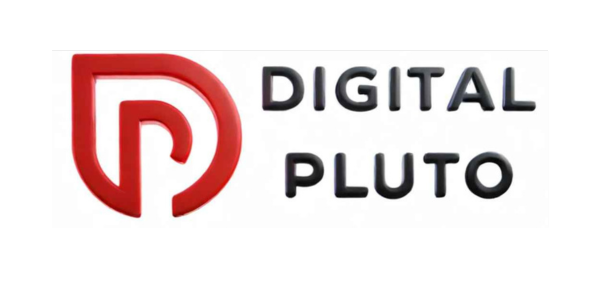
Understanding Performance Marketing
Navigating the world of performance marketing can be daunting, but with the right roadmap, you can carve out a successful career in this dynamic field. This blog will explore the essential skills, mindset, and strategies needed to thrive in performance marketing in 2024.
Performance marketing refers to a form of digital marketing where the outcomes are measurable. This approach focuses on specific metrics that define success, such as leads generated, sales made, or other quantifiable results. Rather than relying on traditional marketing metrics, performance marketing centers around achieving a return on investment (ROI) based on the efforts deployed.
In essence, if you’re investing in marketing, you want to see a clear correlation between your expenditure and the results achieved. This makes understanding performance marketing a powerful tool for businesses looking to optimize their marketing strategies and improve profitability.
Differentiating Performance Marketing from Digital Marketing

While performance marketing is a subset of digital marketing, it is crucial to understand the distinctions between the two. Digital marketing encompasses a broad range of online strategies, including social media marketing, content marketing, and email marketing. Performance marketing, on the other hand, hones in on results-driven campaigns where every action can be tracked and measured.
To clarify:
- Digital Marketing: Encompasses all online marketing strategies, focusing on brand awareness, engagement, and traffic generation.
- Performance Marketing: Specifically focuses on measurable outcomes, ensuring that every dollar spent is accounted for through metrics like cost per acquisition (CPA) or return on ad spend (ROAS).
Role of SEO in Performance Marketing

Search Engine Optimization (SEO) plays a pivotal role in performance marketing. When executed with a focus on measurable outcomes, SEO can drive significant traffic that translates into conversions. The key is to target bottom-of-the-funnel keywords that indicate a strong intent to purchase.
By optimizing content for these specific keywords, businesses can attract visitors who are more likely to convert. understanding performance marketing allows marketers to establish a mathematical relationship between their SEO efforts and the resulting leads or sales, reinforcing the performance marketing model.
Essential Skills for Performance Marketers
To excel in a performance marketing career, several key skills are essential:
- Analytical Skills: The ability to analyze data and derive actionable insights is critical. Performance marketers must assess ROI and other metrics continuously.
- SEO Knowledge: Understanding how search engines work and how to optimize websites for search is fundamental.
- Advertising Expertise: Familiarity with various ad platforms, such as Google Ads and social media advertising, is necessary.
- Copywriting and Creative Skills: Crafting compelling ad copy and landing pages can significantly enhance conversion rates.
- Technical Proficiency: Being comfortable with analytics tools, tracking software, and other digital marketing technologies is essential.
Understanding D2C Business Fundamentals
Direct-to-Consumer (D2C) businesses operate without intermediaries, selling products directly to customers. Understanding the fundamentals of D2C is crucial for performance marketers, as it influences marketing strategies and customer engagement.
Key elements include:
- Customer Insights: Knowing the target audience and their needs helps tailor marketing efforts effectively.
- Brand Positioning: Developing a strong brand identity that resonates with consumers is vital for differentiation.
- Sales Channels: Identifying appropriate sales channels, whether through an e-commerce site or social media, is essential for reaching customers.
The Importance of Gross Margin and Pricing Strategy
Understanding gross margin and pricing strategy is central to a successful performance marketing career. Gross margin reflects the difference between the cost of goods sold and the sales revenue, influencing profitability.
Performance marketers must calculate gross margins to determine how much they can spend on customer acquisition while remaining profitable. A well-defined pricing strategy ensures that products are competitively priced without sacrificing margins.
Managing Return to Origin (RTO)
Return to Origin (RTO) refers to the process where products are returned to the seller after a failed delivery attempt. Managing RTO is critical for performance marketers, as high RTO rates can erode profits.
Strategies to minimize RTO include:
- Confirmation Calls: Contacting customers post-order to confirm details can prevent cancellations.
- Shipping Partnerships: Collaborating with reliable delivery partners can improve delivery success rates.
- Clear Communication: Providing customers with tracking information and delivery expectations helps manage their expectations.
Building Effective Landing Pages
Landing pages are crucial in performance marketing, as they serve as the first point of contact for potential customers. An effective landing page should be designed with the user experience in mind, ensuring clarity and ease of navigation.
Key elements of successful landing pages include:
- Compelling Headlines: Capture attention immediately with clear and persuasive headlines.
- Strong Call-to-Action (CTA): Guide users towards the desired action with a prominent and enticing CTA.
- Visual Appeal: Use engaging images and a clean layout to enhance user experience.
- Trust Signals: Incorporate testimonials, reviews, or guarantees to build trust with visitors.
Key Metrics in Performance Marketing
Understanding key metrics is crucial in performance marketing. These metrics help evaluate the effectiveness of campaigns and guide strategic decisions. Here are some essential metrics to focus on:
- Return on Investment (ROI): Measures the profitability of marketing efforts by comparing the revenue generated to the costs incurred.
- Cost per Acquisition (CPA): Indicates the cost associated with acquiring a new customer, essential for budget management.
- Click-Through Rate (CTR): Reflects the percentage of users who click on an ad versus the number of times the ad is shown, indicating ad effectiveness.
- Conversion Rate: The ratio of conversions to total visitors, crucial for assessing landing page effectiveness.
- Customer Lifetime Value (CLV): Estimates the total revenue a customer will generate during their relationship with the brand, guiding long-term marketing strategies.
Developing a Mindset for Success
A successfully understanding performance marketing career requires a growth mindset. Embrace challenges and view failures as learning opportunities. Here are strategies to cultivate this mindset:
- Embrace Continuous Learning: Always seek to improve your skills and stay updated with industry trends.
- Set Clear Goals: Define specific, measurable, achievable, relevant, and time-bound (SMART) goals for your career.
- Network Actively: Build relationships with other professionals in the field to exchange knowledge and opportunities.
Learning Media Buying Techniques
Media buying is a critical component of performance marketing. It involves purchasing advertising space to maximize reach and effectiveness. Here’s how to get started:
- Understand Audience Targeting: Learn how to segment audiences based on demographics, interests, and behaviors.
- Familiarize Yourself with Ad Platforms: Gain proficiency in platforms like Google Ads, Facebook Ads, and others to leverage their features effectively.
- Analyze Competitor Strategies: Study what competitors are doing to refine your media buying approach.
Google Ads and Advanced Strategies
Google Ads is a powerful tool for performance marketers. Mastering its features can significantly impact your campaigns. Consider these advanced strategies :
- Utilize Remarketing: Target users who have previously interacted with your brand, increasing chances of conversion.
- Implement A/B Testing: Experiment with different ad copies, visuals, and targeting to determine what resonates best with your audience.
- Optimize for Quality Score: A higher Quality Score can lead to lower costs and better ad placements, so focus on improving ad relevance and landing page experience.
Job Opportunities and Salary Expectations
The performance marketing field offers diverse job opportunities. Entry-level positions can lead to lucrative careers. Here’s what to expect:
- Entry-Level Positions: Roles such as junior performance marketer or marketing assistant typically offer salaries ranging from $25,000 to $35,000 annually.
- Mid-Level Positions: With a few years of experience, salaries can rise to $50,000 or more, depending on skills and performance.
- Senior Roles: Experienced performance marketers can command salaries upwards of $70,000, especially in high-demand sectors.
Freelancing Opportunities in Performance Marketing
Freelancing offers flexibility and the potential for higher earnings in performance marketing. Here’s how to navigate this path:
- Build a Portfolio: Showcase your skills through case studies and successful campaigns to attract clients.
- Network with Potential Clients: Attend industry events and use social media to connect with businesses looking for freelance marketers.
- Set Competitive Rates: Initially, charge lower rates to build your reputation, then gradually increase them as you gain experience.
Continuous Learning and Growth in Your Career
The digital marketing landscape is ever-evolving. To remain relevant, commit to continuous learning:
- Attend Workshops and Webinars: Participate in industry events to learn from experts and network with peers.
- Follow Industry Blogs and Podcasts: Stay updated on trends and strategies by consuming content from leading marketing voices.
- Seek Feedback: Regularly ask for feedback from colleagues and clients to identify areas for improvement.
Conclusion for Performance Marketing Career
Your journey in performance marketing is just beginning. By understanding key metrics, developing a success-oriented mindset, mastering media buying techniques, and committing to lifelong learning, you can navigate your performance marketing career roadmap effectively. Embrace the challenges and opportunities that come your way, and you’ll position yourself for a successful and rewarding career in this dynamic field.
Follow https://www.digitalpluto.co.in/ for the latest updates about Digital Marketing





